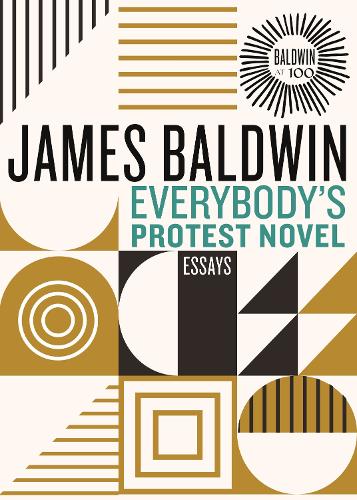
Everybody's Protest Novel
(Hardback)
Publishing Details
Everybody's Protest Novel
By (Author) James Baldwin
Beacon Press
Beacon Press
9th July 2024
United States
Classifications
General
Non Fiction
305.896073
Physical Properties
Hardback
104
Width 127mm, Height 178mm
Description
Originally published in Notes of a Native Son, the essays "Autobiographical Notes," "Everybody's Protest Novel," "Many Thousands Gone," and "Carmen Jones- The Dark is Light Enough," showcase Baldwin's incisive voice as a social and literary critic. "Autobiographical Notes" outlines Baldwin's journey as a Black writer and his hesitant transition from fiction to nonfiction. In the following essays, Baldwin explores the Black experience through the lens of popular media, critiquing the ways in which Black characters-in Harriet Beecher Stowe's novel Uncle Tom's Cabin, Richard Wright's novel Native Son, and the 1950s film Carmen Jones-are reduced to digestible caricatures. Everybody's Protest Novel- Essays is the first of three special editions in the James Baldwin centennial anniversary series. Through this collection, Baldwin examines the facade of progress present in the novels of Black oppression. These essays showcase Baldwin's profound ability to reveal the truth of the Black experience, exposing the failure of the protest novel, and the state of racial reckoning at the dawn of the Civil Rights Movement. "I am completely indebted to Jimmy Baldwin's prose. It liberated me as a writer."-Toni Morrison This collectible edition celebrates James Baldwin's 100th-year anniversary, probing the shortcomings of the American protest novel and the harmful representations of Black identity in film and fiction Originally published in Notes of a Native Son, the essays "Autobiographical Notes," "Everybody's Protest Novel," "Many Thousands Gone," and "Carmen Jones- The Dark is Light Enough," showcase Baldwin's incisive voice as a social and literary critic. "Autobiographical Notes" outlines Baldwin's journey as a Black writer and his hesitant transition from fiction to nonfiction. In the following essays, Baldwin explores the Black experience through the lens of popular media, critiquing the ways in which Black characters-in Harriet Beecher Stowe's novel Uncle Tom's Cabin, Richard Wright's novel Native Son, and the 1950s film Carmen Jones-are reduced to digestible caricatures. Everybody's Protest Novel- Essays is the first of three special editions in the James Baldwin centennial anniversary series. Through this collection, Baldwin examines the facade of progress present in the novels of Black oppression. These essays showcase Baldwin's profound ability to reveal the truth of the Black experience, exposing the failure of the protest novel, and the state of racial reckoning at the dawn of the Civil Rights Movement.
Author Bio
James Baldwin (1924-1987) was a novelist, essayist, playwright, poet, and social critic, and one of America's foremost writers. His writing explores palpable yet unspoken intricacies of racial, sexual, and class distinctions in Western societies, most notably in mid-twentieth-century America. A Harlem, New York, native, he primarily made his home in the south of France. He is the author of several novels and books of nonfiction, including Notes of a Native Son, Go Tell It on the Mountain, Giovanni's Room, Another Country, Tell Me How Long the Train's Been Gone, If Beale Street Could Talk, Just Above My Head, The Fire Next Time, No Name in the Street, and The Evidence of Things Not Seen, and of the poetry collection Jimmy's Blues.
